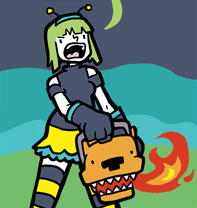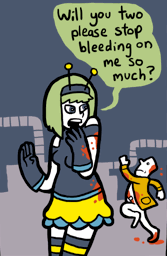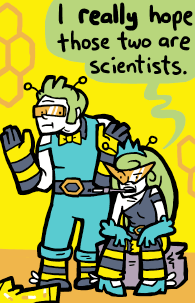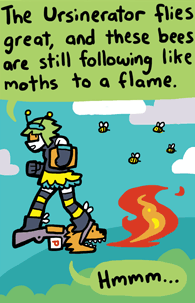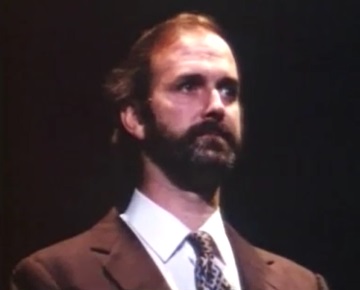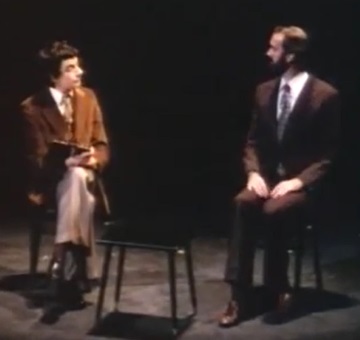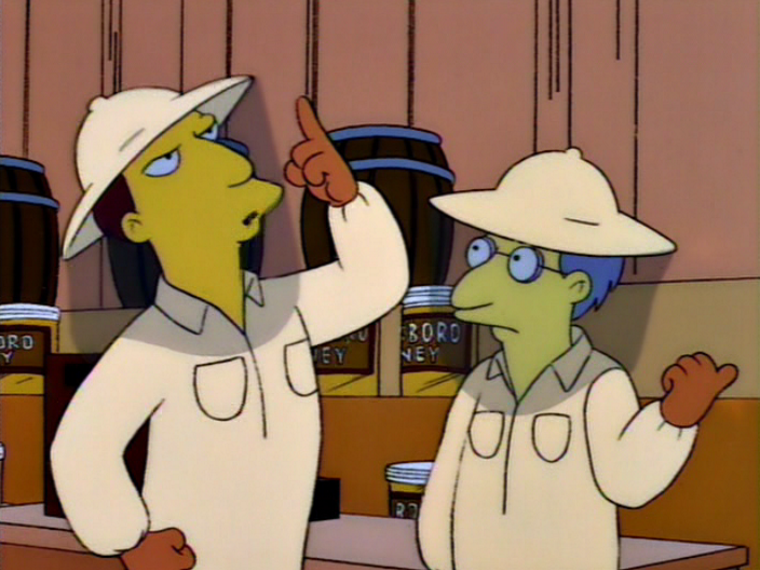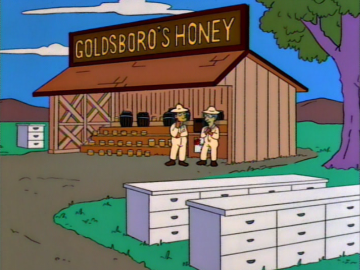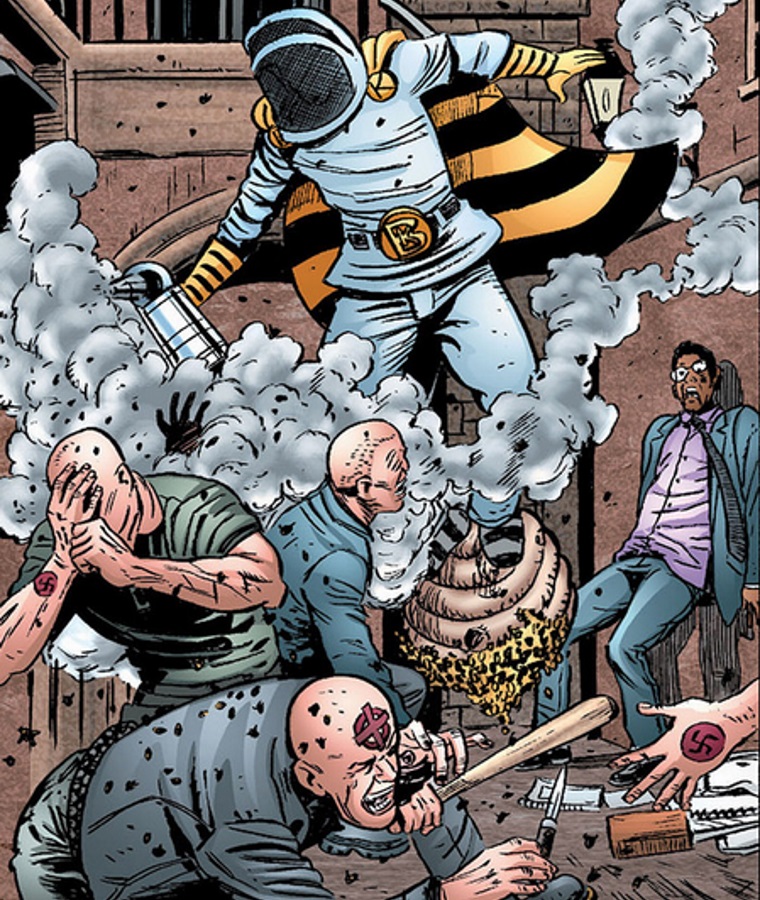Beekeeper Review: Beorn
“He is a skin-changer: sometimes he is a huge black bear, sometimes he is a great strong black-haired man with huge arms and a great beard [. . .] He lives in an oak-wood and has a great wooden house; and as a man he keeps cattle and horses which are nearly as marvellous as himself. They work for him and talk to him. He does not eat them; neither does he hunt or eat wild animals. He keeps hives and hives of great fierce bees, and lives most on cream and honey. As a bear he ranges far and wide.”
That is Gandalf the Grey’s description of Beorn, today’s Beekeeper. Beorn is a character in the Hobbit, and there’s no getting around it: this is one awesome beekeeper. With such an open-and-shut case for beekeeper greatness, it’s a good chance for me to look at what I consider when I rate a apiarist.
First, there’s the general quality of their beekeeping skills. Beorn apparently keeps a large area of bee pastures, and his bees “were bigger than hornets. The drones were bigger than your thumb, a good deal, and the bands of yellow on their deep black bodies shone like fiery gold.” Whatever Beorn is doing, it’s working. He’s got healthy bees and plenty of ’em. He also knows how to work with bee-products: he is noted as having “red beeswax candles” and he knows how to make “twice baked cakes that would keep good a long time, and on a little of which [one] could march far” with honey. He’s a good beekeeper.
Second, are they badass? A beekeeper needs to know how to fight. Today’s guy certainly is: “Beorn was a fierce enemy” the text tells us, and it sounds true: he is a “huge man with a thick black beard and hair, and great bare arms and legs with knotted muscles [and] a large ax.” But we can’t go too far into this element of beekeeper reviewing without brushing up against the next, because next…
Next comes the matter of supernatural powers. They don’t have to be actually “supernatural” in nature, they can be technologically based or whatever, but a great beekeeper needs something that sets it apart from mere mortals. For starters, Beorn can turn to a freaking bear. He’s apparently massive in both human and bear form, so he has the advantages of two separate powerful forms. It seems he prefers fighting in bear-form, though. Check out some quotes from the Battle of the Five Armies:
- “But even with the Eagles they were still outnumbered. In that last hour Beorn himself had appeared – no one knew how or from where. He came alone, and in bear’s shape; and he seemed to have grown almost to giant-size in his wrath.”
- “The roar of his voice was like drums and guns; and he tossed wolves and goblins from his path like straws and feathers.”
- “[N]othing could withstand him, and no weapon seemed to bite upon him. He scattered the bodyguard, and pulled down Bolg himself and crushed him.”
Beorn essentially won that battle. But don’t go thinking that being a bear is Beorn’s only skill. He can also talk to animals, all types of animals, and they like him well enough that they help him out around the house. That’s a sweet deal.
The final element to consider is, how do they handle the Beekeeper Rage? It’s a constant problem and Beorn is no exception. Before dropping in for their unannounced visit, Gandalf warns his comrades: “He can be appalling when he is angry, though he is kind enough if humoured. Still I warn you he gets angry easily.” And that’s how it is. He is angry, but if you can get past it, he is a pretty good guy. At first he doesn’t trust the protagonists, since they are strangers to him, but once he checks out their story “Beorn was most jolly for a change; indeed he seemed to be in a splendidly good humour and set them all laughing with his funny stories.” It is Beorn’s good luck that he exists in a fantasy world in which objectively evil people exist, so he can channel his Beekeeper Rage into mostly productive areas like Goblin removal.
So that’s it. I, as an expert, am able to give or take some ratings based on certain intangible qualities, my gut instincts or just a “certain something” that a character may possess, but the above metric is the most reliable way to tell how good a beekeeper is. So where does that leave us with Beorn?
“Beorn indeed became a great chief afterward in those regions and ruled a wide land between the mountains and the wood; and it is said that for many generations the men of his line had the power of taking bear’s shape, and some were grim men and bad, but most were in heart like Beorn, if less in size and strength. In their day the last goblins were hunted from the Misty Mountains and a new peace came over the edge of the Wild.”
Holy smokes.

Five Honeycombs out of Five. He’s top of the line.

